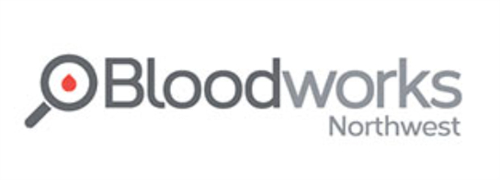
For the day’s Zoom session President Jimmy rang the bell promptly at 12:30 pm. This was followed by Virginia McKenzie and Bill Center for the day’s song When you’re smiling; and Cathy Gibson for the day’s inspiration. Jane Pryor introduced new member Alex Liatsis, with the classification of real estate, as a Young Rotary Leader.
The day’s short program featured Robert Bowery and Anne Jannetti of Compass Housing Alliance who described a research project developed in conjunction with the UW School of Nursing: Dementia and Homelessness. Are We Ready?
As Compass Housing Alliance celebrates its centennial year, the organization manages 20 locations across the Puget Sound region, supporting 8,000 families experiencing homelessness every year. The research project focuses on how best to address the needs of the aging population, starting with those in Compass Housing facilities. “This is an example of community-based participatory research, managed by the University of Michigan as a national project,” said Ms. Jannetti. An increasing number of those experiencing homelessness are older, as the objective of the research is to provide assistance to providers about the increasing needs of those with cognitive impairment experiencing homelessness.
President Jimmy then invited Past Seattle 4, President Nancy Osborne, to introduce the day’s featured program about the scourge of malaria and how Rotary has joined with World Vision and the Bill & Melinda Gates Foundation to eradicate it. Nancy who founded Malaria Partners International reflected on more than a decade’s work that brought together Seattle #4, and Rotary Clubs around the world to implement projects aimed at eliminating Malaria.
She introduced the day’s key presenters Bellevue Breakfast Rotarian, Jenny Andrews, Executive Director, Malaria Partners International, and Federal Way Rotarian Brian Gower, Senior Director Partnerships, World Vision, to describe how the partnership has blossomed to combat malaria.
“Malaria Partners International (MPI) grew from that challenge of 12 years ago that has since brought at least 30 Seattle #4 Rotarians who have stepped up with many others to help fight malaria around the world,” Ms. Andrews began, “as we ignited a full-blown Rotary International effort to eliminate malaria worldwide.”
Seattle #4 Rotarians who have been instrumental in developing MPI: John Adams, Maureen Brotherton, Catharine Cleveland, Steve Crane (R.I.P.), Corinne Cavanaugh, Linda Cheever, Charley Dickey, Jim Duncan, Dorothy Echodu, Kathy Gibson, Larry Granat, Bill Hammond, Judith Kaiser, Carma McKay, Jim Moore, Marsha Mutisi, Roberta Nestaas, Nancy Osborne, David Owens, Derick Pasternak, Jeff Pritchard, Harry Short, Dave Siebert, Lacey Stone, Sarah Weaver, Kathy Williams, and…Bill Gates, Sr.
A decade onward, Malaria Partners International has completed two Global Grants in Zambia, with a third one currently underway. A fourth Global Grant, this time in Uganda, is in the planning phase. 87 Rotary clubs from 14 districts have contributed to these projects. MPI also provides incubator grants to Rotary clubs in endemic countries to support them in taking on malaria elimination projects in their communities. “Rotarian Charlie Dickey has done a remarkable job in running this program and getting grants going in areas where there is a need,” she said. “We are helping to build malaria warriors around the world with these small grants.”
Malaria is the greatest killer of humankind in the history of the world. It has killed more people than any other disease and has a dramatic effect of keeping people and entire communities in the cycle of poverty, as sufferers are not able to work or go to school. Although Malaria was largely wiped out in the United States through the widespread use of DDT, it remains a very real modern-day problem in Africa where it sickens over 230 million people every year.
As Rotarians around the world mobilized to eradicate polio, Rotary is taking on malaria in a similar way, with meaningful partnerships that leverage scale and money to fight the devastating disease. Ms. Andrews described a three-legged “getting to zero strategies” to curb malaria: 1. The use of insecticide-treated bed nets, indoor residual spraying, and eliminating the breeding sites of mosquitoes; 2. Education about what causes malaria and how it can be prevented and treated and 3. Training and equipping Community Health Workers who work in their own communities to test, treat and educate their neighbors for malaria.
“We provide a seven-day training program for all-volunteer community health workers, including a day of field training,” she said, “and we equip them with everything they need to do their job.
She then described a six-year, $6M grant to fund the ‘Partners for a Malaria Free Zambia’ project, spearheaded by the Rotary Club of Federal Way. The project was fueled by a $2M Rotary International Programs of Scale grant, along with $2M from the Bill & Melinda Gates Foundation and $2M from Federal Way-based World Vision. This three-year program, combined with CHW training projects already completed, will train more than 4,000 community health workers in Zambia who will each treat 500 of their community members resulting in well over 2 million Zambians being freed from malaria.
She went on to share how all of this was launched as a result of the Seattle #4 Rotary club taking on the audacious goal suggested by Bill Gates Sr. of eradicating malaria.
Ms. Andrews then asked Federal Way Rotarian Brian Gower, and Senior Director Partnerships, World Vision, to describe World Vision’s role in the partnership to combat malaria.
World Vision is a faith-based organization but does not discriminate in its mission to provide needed services to developing countries around the world. “We work to find significant solutions to significant problems with water, economic development, and more,” he said. “World Vision coordinates 16 service projects worldwide, investing $20M to reach 1.2 million people.”
He described World Vision and Rotary as ideal partners having a significant impact by engaging local leaders and the private sector to help build the capacity of health workers. World Vision supports Rotary with technical and financial oversight and implementation of programs.
Rotary International and World Vision leadership spent nine months developing a memorandum of understanding to serve as a guide to work on large-scale projects, beginning with the Malaria Free Zambia project.
The day’s presenters concluded by offering how harnessing the experience and breadth of Rotary along with the Bill & Melinda Gates Foundation, and World Vision forged Malaria Partners International, and likely other such projects in the future in other African countries.

